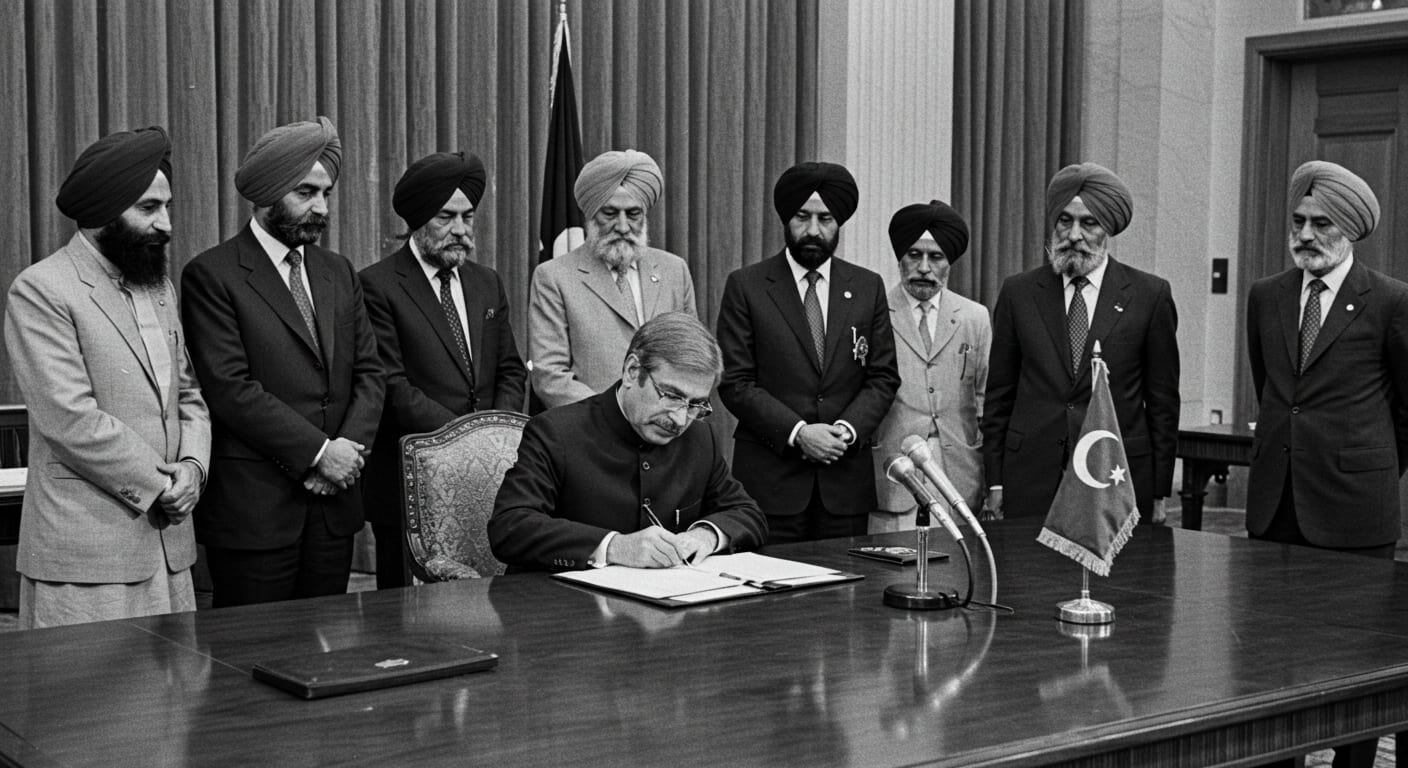🤝 1979 — Pakistan Recognizes Sikh Identity
The President of Pakistan signs a historical document, officially recognizing Sikhs as a distinct entity.

Just six years later, in 1979, another pivotal moment unfolded that significantly impacted the Sikh diaspora, particularly those with ancestral ties to Pakistan, marking a crucial step in international recognition and the assertion of distinct identity.
During an official visit by an International Sikh Delegation, the then-President of Pakistan signed a historic document, solidifying a new understanding. This landmark agreement formally recognized Sikhs as a 'distinct entity' within the nation, signifying a commitment to granting specific rights and acknowledging their unique cultural and religious identity, especially pertinent for the many Sikhs whose holy sites reside there. This official recognition was a direct result of sustained diplomatic efforts and community advocacy.
This diplomatic achievement powerfully highlights the enduring importance of international dialogue, persistent advocacy, and cohesive community efforts in securing minority rights and preserving cultural heritage across national borders. It set a significant precedent for how governments can officially acknowledge and support distinct communities within their diverse populations, fostering respect, understanding, and equitable treatment. Such recognition is vital for community well-being.
Consider the ongoing importance of advocating for religious and cultural distinctiveness and equitable representation for all minority communities in a complex global society.
|

